Search Definitions
Browse Content
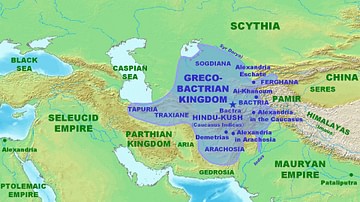
Definition
Bactria
Bactria was a province of the Persian empire located in modern Afghanistan, Uzbekistan, and Tajikistan. After the defeat of Darius III of Persia, Bactria continued to offer resistance against Alexander the Great, led by Bessus, who...
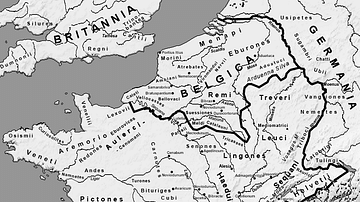
Definition
Gaul
Gaul (Latin Gallia, French Gaule) is the name given by the Romans to the territories where the Celtic Gauls (Latin Galli, French Gaulois) lived, including present France, Belgium, Luxemburg and parts of the Netherlands, Switzerland, Germany...
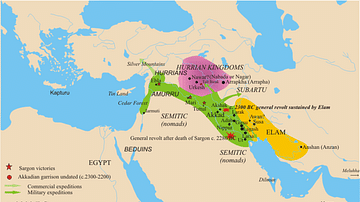
Definition
Akkad and the Akkadian Empire
Akkad was the seat of the Akkadian Empire (2334-2218 BCE), the first multi-national political entity in the world, founded by Sargon the Great (r. 2334-2279 BCE) who unified Mesopotamia under his rule and set the model for later Mesopotamian...
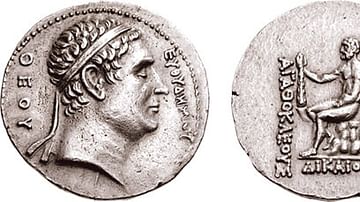
Definition
Coinage
Coins were introduced as a method of payment around the 6th or 5th century BCE. The invention of coins is still shrouded in mystery: According to Herodotus (I, 94), coins were first minted by the Lydians, while Aristotle claims that the first...
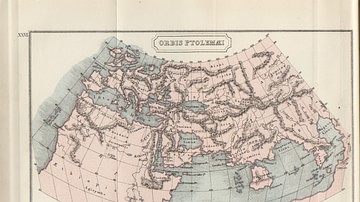
Definition
Arabia
The ancient Arabians, or Arabes as they were called by the Hellenes, were a Semitic people. One must note that the Arabians were not a single people but multiple smaller kingdoms and tribes. Arabia was home to great city builders and nomads...

Definition
Greco-Bactrian Kingdom
The Greco-Bactrian kingdom refers to several dynasties and probably kingdoms of Greco-Macedonian monarchs who ruled over Bactria from 250 to 130 BCE. Foundation The Greco-Bactrian kingdom appeared in 250 BCE, when the satrap Diodotos...

Definition
Euthydemid
The Euthydemids were a Greco-Bactrian and Indo-Greek dynasty of approximately 25 kings, named after its founder Euthydemos. The dynasty lasted between circa 230 BC and 10 BC, according to numismatic evidence. The numismatic emblems which...
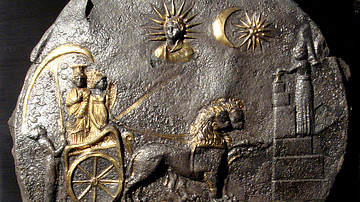
Definition
Eucratid
The Eucratids were a Greco-Bactrian and Indo-Greek dynasty of approximately 12 kings, lasting between c.171 BC and 80-70 BC, according to numismatic evidence. The numismatic emblem which characterized it were the palm and the Dioscuri (Castor...
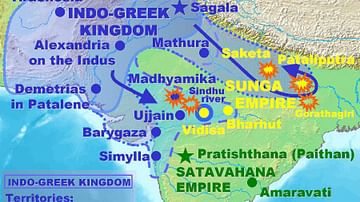
Definition
Indo-Greek
The first Indo-Greek kingdom appeared circa 190 BCE may when the Greco-Bactrian king or (general for his father) Demetrios was busy in India, when his Indian possessions were divided between several kings, probably firstly in order to better...

Definition
Iaxartes
The Iaxartes is a river, today-called Syr-Daria, which springs west of the Pamir Mountains in Fergana (in modern Kyrgyzstan), and flows through modern Kazakhstan, Tajikistan, and Uzbekistan to Lake Aral, covering a distance of 2212 km. In...